[00:00:00] JEMIMA WELSH: We roped in a cousin of mine who is a builder and asked him to help us build a library on one wall of our house. So it makes our friends laugh because the children have their toys, and then we have our books and we're all very happy together.
ANNE BOGEL: Hey readers, I'm Anne Bogel, and this is What Should I Read Next?. Welcome to the show that's dedicated to answering the question that plagues every reader, what should I read next? We don't get bossy on this show. What we will do here is give you the information you need to choose your next read. Every week we'll talk all things books and reading and do a little literary matchmaking with one guest.
[00:00:54] Readers, it's hard to believe but we are quickly approaching the 500th episode of What Should I Read Next? And we're so excited about this coming milestone. I hope you'll look forward to tuning in to our 500th. And I just want to say thank you to all of you. We wouldn't be here without you, and it's been a joy to talk books with you for so many years now.
For today's episode, I'm joined by a guest whose query sounds just right for when the world feels heavy. Jemima Welsh is joining me today all the way from Brisbane, Australia, where she lives with her family and her pets, including four chickens named for the March sisters.
Jemima is an avid reader who enjoys exploring new topics and themes, often through the reading challenge she's created along with her husband. In addition to the books on her current to-be-read list, Jemima is specifically looking for books that feel, quite literally, close to home. She is seeking stories that feature warm, rambling houses, complex but inherently lovable and perhaps found families, and scenes of cheerful domesticity.
[00:01:53] I love this theme for Jemima and, honestly, for all of us here in the Northern Hemisphere as we head into the fall reading season.
Let's get to it.
Jemima, welcome to the show.
JEMIMA: Thank you, Anne. It's really lovely to be here. I have to tell you, when I found out I was going to be on the podcast, it was the same week that two of my sisters got engaged, and that was very exciting. But I remember sitting at the dinner table with my family, going, "Yes, yes, it's all very exciting that you're getting married, but I'm going to be on What Should I Read Next? podcast." And I thought that was just as exciting.
ANNE: Celebrations for all.
JEMIMA: Absolutely.
ANNE: I love it. Thank you for doing time zone math for joining me from halfway around the world.
JEMIMA: Keeps us on our toes in this globalized world, doesn't it?
ANNE: Jemima, so I just gave our readers a clue, but tell us about yourself. We really want to give our readers a glimpse of who you are and where you are.
[00:02:52] JEMIMA: I am in my early 30s. You can probably tell by my accent that I am Australian, and I live in a city called Brisbane, which is in the state of Queensland on the east coast. So we sit just above Sydney as far as maps go, but it's quite a long drive to Sydney.
I have two small children aged four and one who make life fun and keep me on my toes. And I'm married to my husband, Ben, who's a pediatric physiotherapist and who also loves books, which is very handy.
Here in Brisbane, we live on the outskirts of the city in a wooden Queenslander cottage. So it's a style of house that is made entirely of wood, and it's very typical of our subtropical region. They're very beautiful houses, but they take a lot of upkeep. But it's a joy to live in one, especially in summer when it's really hot.
[00:03:58] We like to joke that we're living in the countryside, but that's not technically true. Our suburb here on the outskirts of Brisbane is surrounded by hills and cows and state eucalypt forests. So it's very beautiful.
And we wake up to the sound of kookaburras laughing and cockatoos eating the passion fruit from our veggie garden. So we have lots of animals in our lives. We have a little dog called Ruby and four chickens who we call the little women because they are called Meg, Jo, Beth and Amy. So it is a motley crew.
ANNE: That sounds like a full life. Where does reading fit into this for you?
JEMIMA: Well, reading is a really big part of my life, Anne. We moved into our house a couple of years ago and one of the first things we did was hire, I say hire, we roped in a cousin of mine who is a builder and asked him to help us build a library on one wall of our house. So it makes our friends laugh because the children have their toys and then we have our books and we're all very happy together.
[00:05:10] But yeah, I've always been a very voracious reader. I am the eldest of six children, and my parents have always encouraged us to read. My father, especially, is a voracious reader. He is English and he has owned thousands, I would say, of books over his life. And he keeps many of them at home, actually.
He lives in England in the English countryside, and he keeps many of them in custom-built shelves in his house. Actually, it's a precondition of where he and his wife move because the houses they live in always have to be able to fit lots and lots of books.
But when we were growing up, dad always used to introduce me to books or ask what I was reading. And we would have these big debates at the dinner table about life's big questions while the rest of my siblings sort of rolled their eyes and carried on eating. But it did make for a really happy, curious childhood. And I guess that's always continued.
[00:06:15] I studied English literature at uni and I am now part of a book club, which I love. We take turns picking books. One year, we did a year of all women writers and another year we had a system whereby someone would choose the genre and another person had to choose the type of book within that genre. So we meet every month or so and have some great discussions. So books are a really big, important part of my life. They bring a lot of joy.
ANNE: I'm glad to hear that. Jemima, what spurred you to come on What Should I Read Next? at this point in your life and reading life?
JEMIMA: Well, I have, I think, through listening to your podcast, Anne, and thinking and reflecting more deeply about my reading life, because it wasn't something I thought to reflect on, actually, up until a couple of years ago. I always just read what came across the desk, so to speak, and had interests and followed those down rabbit holes. But I didn't really reflect on my reading life or what I enjoyed or what I didn't enjoy or what my tastes were.
[00:07:26] More recently, I've started to notice, "Okay, well, this is definitely what I love reading. This might be temporary. This is where I love to sort of spend more time and detail reading." But I've really noticed, over the last year, that I'm drawn to books that feel very immersive in nature and have, at the center of them, a story about big rambling homes and families and all of the chaos and higgledy-biggledy nature of life that comes with that.
So I wanted to ask you for some recommendations on that theme and, yeah, maybe explore a bit further some avenues that I haven't found yet along that theme.
ANNE: Okay, that sounds like a lot of fun. Jemima, how did you choose the books you brought to the show today?
[00:08:28] JEMIMA: They're all books, Anne, that I've read in the last couple of years. And funnily enough, they're all books that now that I look back on them, I think, "Wow, there are some really clear themes running through here."
They're different in tone and nature, but they really focus on what I'm coming to think of as the interior or parochial life. So people's inner worlds, and whether those inner worlds are inside themselves or whether they are within a confined space of the home, the family home, or the family unit, or the community, the local community. And I find that that microcosm that they're exploring really appeals to me, which I can talk about further with the books.
[00:09:24] ANNE: I can't wait. Jemima, you know how this works. You're going to tell me three books you love, one you don't, and what you've been reading lately, and we'll see what you're looking for in your reading life right now and what you may enjoy reading next.
What is the first book you love?
JEMIMA: This is a book called Darling by India Knight. It is a book that has a beautiful cover. And I admit, that's why I was drawn to it in the first place. It's this cream background with this absolute riot of pink and purples and red colors. And it's got flowers on the front and teapots and champagne glasses. It just is so vivid and beautiful.
I picked it up not knowing anything about it and now I know that it's a retelling of Nancy Mitford's The Pursuit of Love. The Mitford siblings I know are having a heyday at the moment. There's a TV show that's just come out called Outrageous, which a lot of people are talking about.
[00:10:27] But this book, Darling by India Knight, it is set in an isolated, sprawling farmhouse in Norfolk in England, and it tells the story of the Radlett family, as told through the observations of a young girl called Franny, who is the cousin to the Radlett family.
The Radletts are a bit of a motley crew. So they're very eccentric, but lovable. The father, Matthew, is a former rock star, and the mother, Sadie, Aunt Sadie, as she's known, is very bohemian and caring and larger than life. Just this beautiful mother figurehead of the family, who's often cooking these amazing meals in the kitchen and wafting around in jewelry in their big farmhouse.
[00:11:22] The Radletts have a teenage daughter, Linda, among a few other siblings. Linda is really the protagonist of the story. She's this beautiful, outrageously optimistic young woman. And she has big dreams and a desire to go out into the world and have these incredible experiences and fall in love.
And where they are in Norfolk, they're sort of kept at bay from the world. They have a “no phones, no TV" rule imposed on them, and they don't have much interaction with the world at large. But they live this very beautiful, protected life.
The book talks about Linda's journey out into the world and what that experience is like, and all the adventures that she has. There are some sad moments in the book. And anyone who's read The Pursuit of Love, I'm sure, can preempt those.
[00:12:21] But it's such a wonderful comfort read. It is incredibly sharp and witty, and clever. And it casts these judgments on the world while remaining really delightfully self-deprecating. I think I loved all the descriptions of the house and the adventures of the family and their reflections on the world and wondering what the world will be like and extrapolating from books.
There's this wonderful quote in the book where the siblings are all talking together out in the barn or something. They're talking about people that they love. And they say they wish they could carry the people that they love around in their pockets and put them on their bedside tables. And I thought that was such a beautiful way to think about the world and the people we love. And it's certainly how I feel about this book. It's come to mean a lot to me.
[00:13:24] ANNE: Jemima, I haven't read Darling, but oh my goodness, this cover is so gorgeous. And your description makes me want to jump in. But I haven't read Nancy Mitford. Is that a prerequisite, do you think?
JEMIMA: Well, Anne, I haven't read Nancy Mitford. I want to. Because people say that The Pursuit of Love has a similar tone. It's very witty. It's very wry. And it tells the story of the Mitfords.
It is a fiction, but people say that it draws a lot on the childhood of the Mitford siblings and all the adventures they had when they were young. But I certainly did not feel that I was in any way disadvantaged by not having read Nancy Mitford before I picked this up. If anything, it'll probably allow me to go to The Pursuit of Love with maybe a fresh appreciation for what it is.
ANNE: I hear that. Okay, thank you. Jemima, what's the second book you love?
[00:14:22] JEMIMA: Well, this is a book that is a little older. It was originally published in 1952, and it's called Excellent Women by Barbara Pym. It's recently been republished by Virago Modern Classics.
It's essentially a comedy of manners. So it has that very dry, witty British humor that I love. This humor comes from observations of people in their everyday lives. The title, Excellent Women, is a euphemism of sorts. It refers to unmarried women who couldn't possibly have anything better to do with their time. So they end up helping everyone around them, which makes them excellent.
This story is about Mildred Lathbury, who is an unmarried woman in her 30s. And she lives alone in a flat in London. And she's very much the clear-headed, sensible type of woman who, you can just picture it, organizes church feasts and makes tea for everyone who turns up to a parish meeting.
[00:15:34] One day, Mildred is living her very conventional, regular life. And one day, a very modern married couple moves into the flat below Mildred's. And suddenly, Mildred finds her very settled life overturned by the tumultuous domestic lives of this couple.
I think the book is a really satirical look at marriage versus independence. And I'm conscious that it was written in the 50s, so that context is relevant. But it's very clever in that it very subtly talks about the different types of women that take on different roles within a community and at the same time, completely sends that up and shows it for what it is.
[00:16:30] But it's not a book that is necessarily plot-driven. It focuses more on the feelings and the observations of Mildred and her very rich inner world, where she has these longings and desires to be of value and use in the world.
But she has all these uncertainties about it, and at the same time, she's this unflappable good woman who's just trying to live a good life, and how she lives in juxtaposition to this very modern married couple who are living a life that is quite daring and bold, and just much more tumultuous, let's say. So it's very subtle, very clever, but it has flair and a lot of humor.
ANNE: Ooh, subtle with flair. I'd go straight to that shelf in the bookstore.
JEMIMA: It's a good combo, isn't it, that sort of cleverness, but doesn't take itself too seriously.
[00:17:33] ANNE: Jemima, what's the third book you love?
JEMIMA: Well, this is Winter Solstice by Rosamunde Pilcher. I know it's been talked about on the podcast because that's where I got the recommendation in the first place. I was looking for a book that had a really strong sense of place that I could read over Christmas. And of course, here in Brisbane, Australia, Christmas is incredibly hot. It's usually around the 40 degrees Celsius mark, and we usually have a thunderstorm at three o'clock in the afternoon. So I was trying to conjure up feelings of snow and cottages and mulled wine. And this book got me pretty close.
It is about four people who are thrown together unexpectedly for Christmas, which they spend in a beautiful house in the Highlands of Scotland. And these four people come from very different walks of life, but they are dealing with grief and hard things.
[00:18:37] The book is about them coming to find solace and healing in each other, and the process that that takes through the kind of ordinary pitter-patter of everyday life. The ordinary sort of flow of life.
It's a very gentle book. It's got these very rich descriptions of domestic life and the village in which they live and are staying. It spends time on conversations and the minutiae of things. I spoke about it being a novel that deals with grief and healing, but it's not a book that sits in that place of gloom. It's a very hopeful book, and it restores your belief in the inherent goodness of people, which I really appreciate at this point in the world where things tend to feel hard. It is really nice to have a book that reassures you that humanity is inherently good.
So it's a very long book, but I read somewhere that nothing can be loved at speed. And I really do feel that the more you sink into this book, the more you appreciate it.
[00:19:59] ANNE: Nothing can be loved at speed. Okay. I'm going to ponder that.
Jemima, now would you tell me about a book that was not right for you? And I'd love to hear why. Did it not sync up with your taste? Was the timing all wrong? Was it not what you expected?
JEMIMA: Well, this is a book that was incredibly popular when it came out. And I know that one of my sisters loves it. So it makes for good conversation in the house. But it's called When the Coffee Gets Cold by Toshikazu Kawaguchi.
We read it as part of our book club who pick a wide assortment of books, many of which I love and some of which I don't. And this one I should have loved. And because it focuses on coffee, and I love coffee, and it's set in a cafe, and it is essentially about second chances in life.
[00:21:04] So it tells the story of this special coffee shop in Tokyo where you can visit. And for the price of a cup of coffee, you can travel back in time to a moment or a person in your past. And while you can't change anything foundational about the past, you can glean new information that allows you to see the present or the future in a different light. But you have to be back before your coffee gets cold.
It's a very slim book. And in many ways, I should have loved it, but I, generally speaking, prefer linear narratives. And this one is a time travel book. So I do struggle with time-travel books occasionally.
This book also was very earnest in tone, which didn't sit well with me. I tend to prefer books that have a sense of humor or that tend to not take themselves too seriously. This book, while it had a beautiful message, it felt a bit jolty. Like it sort of jumped between visitors to the cafe. It didn't linger on relationships or any particular storylines. And it felt like a montage.
[00:22:30] I think someone in our book club told us that it started off as a stage play, and it was then translated when it became a novel. And that makes total sense to me, because this book reads to me like a stage play. It has that montage quality about it.
But the tone of it, as I said, was quite earnest and felt a bit like a self-help novel, almost, or certainly didactic in tone. And that it was more tell rather than show in my mind. And I felt like I couldn't really sink into it and make up my own feelings about it. It felt too simple in its messaging.
ANNE: Okay. When what you were looking for was, oh, effusive was the word that came to mind, but really detailed, evocative descriptions of that domestic interior life?
JEMIMA: Yes. Yes. I don't mind detailed descriptions. I know some people would prefer that a book is quite plotty and moves at a good speed, and I certainly like that. But I really like to be able to conjure up in my head very rich worlds and immersive worlds, a really strong sense of place. And I just didn't get that from this book.
[00:23:53] ANNE: Jemima, what have you been reading lately?
JEMIMA: Well, I have been reading a lot of books lately, and some have been stellar. I read The Living Mountain by Nan Shepherd, which is a memoir. So it's a nature memoir. It was gifted to me by a dear friend. It reflects upon life on the Cairngorm Mountains in Scotland.
So Nan Shepherd often used to travel up on the Cairngorm Mountains, and she speaks to this almost spiritual connection she had with the place and the world as she saw it from these mountains, and the world within the mountains.
It's definitely a book about the power of noticing the natural world. And it has this incredible introduction by Robert Macfarlane, actually, and a great afterword by Jeanette Winterson. I highly recommend it. It's great.
[00:24:58] We also recently read for our book club Klara and the Sun by Kazuo Ishiguro, and I thought it would be fantastic. I loved The Remains of the Day, but I could not get into this book, and I tried. I really tried.
But I don't tend to like books about robots or AI, although Becky Chambers' Monk and Robot books are an exception to that. I think they're beautiful.
ANNE: Oh, I'm glad to hear that, because I was wondering if they would be a good fit for you.
JEMIMA: Yes, I love them. Even though they're quite slim, they are very profound, but also very gentle. This book, Klara and the Sun, I just found too sparse. Does that make sense? Yeah. Something about it just felt too sparse and not as interesting to me.
ANNE: You want the details in setting and character.
JEMIMA: Absolutely.
[00:25:58] ANNE: Okay, that's helpful. Jemima, what are you looking for in your reading life right now?
JEMIMA: Well, I have a reading challenge with my husband, and we choose about 12 books for the year, one book a month, to prompts like a favorite book by a favorite author, and a book I loved when I was younger and I really want to revisit. And that's been a really lovely challenge this year. I've certainly read books that I wouldn't necessarily pick up, particularly from his shelves.
One of the prompts was pick something from each other's shelves. And I thought, "Oh gosh, here we go." But no, it's actually been really excellent. I've enjoyed the stories that I've read so far.
One of the things that I find quite difficult in my reading life at the moment, I guess, is the ever-present challenge of social media and online recommendations. So when I find that I really love something in books, or I really love a new genre or a theme in books, I tend to go down these really convoluted rabbit holes online and research books from backlist or that are coming out that fit that theme. And, oh, should I get that one? Should I buy that one? Do I feel like reading this one?
[00:27:25] And all of that research and discovery is heaps of fun, but I think it takes away really valuable time from actually just sitting down with the book and reading the book. I find that I tend to just look for other people's recommendations online and delve into that without necessarily just trusting my gut of, what do I feel like reading now and now?
So I would love that to be different, that prompt of, okay, well, just go and read a book rather than jumping online. Yeah. So that's something I'd love to be different.
But I do have this newfound love for, it's not newfound, it's just something I've realized about myself and my interests lately. And that is that you can probably tell from my books that I love that I'm really drawn to stories that focus on that rich, what I'm calling the parochial life.
[00:28:27] So books that are quite interior and that microcosm of domestic life, cheerful domestic life. I think a lot of people dislike parochial books or think they dislike parochial books. It's that old criticism of Jane Austen that nothing much happens in her books except people talking and drinking tea.
And actually everything happens in her books because we humans, most of our lives are lived in the home and with our families and with the people in our local communities. Those are such rich settings for self-discovery and relationships. They really are windows to the world.
So I really love books that are warm in tone, that might feature these rambling big houses that have these inherently lovable families or found families or friendships, and that focus on those scenes in everyday life, the minutiae of everyday life. So what are we cooking? What are we eating? What are we listening to? What are we doing? What are our challenges that really bring you back down to earth?
[00:29:51] So when the world feels a lot, as it often does these days, I find that I'm really drawn to those sorts of books that bring me back down to earth and reassure me that, you know, the world is a good place and that that starts at home.
ANNE: This sounds like fun.
JEMIMA: Yeah, I think so.
ANNE: I was scribbling so fast. You said earlier that you want books with a strong sense of place and you're looking for books that focus on rich parochial life inner worlds, warm in tone, big rambling houses, definitely welcome, portraying inherently lovable families or found families and that really focus on the minutiae of everyday life. I love the way you brought Jane Austen into this.
[00:30:41] Books that bring you back down to earth, and like a safe, welcoming, inviting, warm, lit-by-candles, ready-with-a-cup-of-tea earth home.
JEMIMA: Perfect. Can I move in now?
ANNE: Oh yes, that sounds lovely. Jemima, the books you loved were Darling by India Knight, Excellent Women by Barbara Pym, and Winter Solstice by Rosamunde Pilcher. Not for you was When the Coffee Gets Cold by Toshikazu Kawaguchi. You wanted a really rich picture, I think, of the earth, the home, the place you were going to be entering. Because I don't hear that the coffee shop itself was an obstacle. A coffee shop could be a sort of home in this sense.
But you wanted more show and less tell, and I think more space to envision the actual world, the actual setting. Does that sound right?
JEMIMA: Very insightful.
[00:31:41] ANNE: So strong sense of place. But here the place was in the mind, not the actual physical place, and you like the actual physical place to get center stage.
JEMIMA: I do.
ANNE: Perhaps. That's a theory.
JEMIMA: I think that's a good theory, and I think that's true. I definitely like to be able to conjure up a setting when I read books.
ANNE: I find that helpful. Okay, can we jump in.
JEMIMA: Please. That would be great.
ANNE: I'm very cognizant that you are in Australia, and availability isn't a huge issue, but it's a little bit of an issue. Like, I'm going to have a harder time tracking down a copy of Darling by India Knight than you did there, and I know the same may be true for some of our more contemporary titles. So I'm keeping that in mind as we're thinking about what you may enjoy reading next.
I think a great place to start would be with the older, and I believe readily available, novels of Laurie Colwin. She's a U.S. writer. Have you read any of her work?
JEMIMA: No, I haven't. I've heard her name, and people rave about her books, but I've never read anything.
[00:32:47] ANNE: People do. The kind of readers who love her books rave about her books, and I think you may be one of those readers. She's well known for writing with warmth and humor. Her works are described as charming and touching, sometimes cheerfully irreverent, which I think sounds like your cup of tea. Her final works were published in the early '90s.
I think there are really two good avenues to begin with her work. I completely love her food writing: Home Cooking and More Home Cooking. These also feel cozy and domestic, but in a different way from most of what we are talking about today. We do get those rich descriptions of interior life, chicken that you can smell and see and taste and really just conjure in your mind, or a vinaigrette, or a table setting, or welcoming people into your home, or her standing at the kitchen counter deciding what to do with the celery in her hand. I'm making up the part about the celery, but the image I think you have.
[00:33:51] They feel so cozy and domestic. And she's really hospitable with sharing her thinking process about not just how to cook the chicken, but why and what it all means.
But also, she wrote a bunch of novels. I remember one review from ages ago—because her last book was published in 1993, I believe after her death—called her books "domestic fairy tales for adults." If I could identify one phrase that would make me think, "This is a book for Jemima," I think "domestic fairy tale for adults" would be it.
Incidentally, you mentioned the new cover for Darling by India Knight. Several of her works recently got new covers from Harper Perennial. Maybe they'll have them in Australia that you can keep an eye out for.
There's a specific Laurie Colwin title coming to mind that I think could either be completely perfect for you or all wrong. But I'm going to let you decide. Are we good with that?
JEMIMA: Absolutely, yeah.
[00:34:50] ANNE: Well, before we even hit record on this, we were chit-chatting about the stages of family life. My kids are older than yours, yours are quite young. But Laurie Colwin wrote this book called A Big Storm Knocked It Over.
Maybe I should start by saying nothing much happens in her books. She shows decent, really fundamentally likable people living realistic lives. And some readers are like, "Oh, where's the drama? Nothing happens." But some readers are like, "Yes, this is everyday life. This feels realistic, this feels accurate, this feels so friendly and hospitable." There is plot, but they are not plot-forward by any means.
But in A Big Storm Knocked It Over, there is an actual big storm in the book, like a weather event. It's not quite a tornado, but in that kind of storm-damage situation. But the big storm here really is marriage and new parenthood.
[00:35:51] We see these two couples, because she loves to write about couples and pairs navigating life together and forming their own kind of found family. She often portrays little family groups where the adult individuals came from unhappy homes, and they're forging their own way for their own adulthood.
But we see especially this character named Jane Louise, who recently got married, and then she has a friend named Edie, and they both become pregnant. We see how their lives change. And the big storm that blows through and knocks it over are these utterly mundane but also cataclysmic life changes of making their relationship legally official and becoming parents.
So I don't know if that's going to feel completely perfect or a little too on the nose. What do you think?
[00:36:42] JEMIMA: Well, it's certainly relevant. The setting and the stage of life definitely I can relate to. That sounds really interesting. Do you know, I've heard so many good things about Laurie Colwin, and what I've heard is that she does focus on the domestic setting.
I'd be really keen to try it. I think it's not something that I knew. This book, certainly, I didn't know about, and I wouldn't necessarily know to pick it up. But that's why it's a great recommendation because it's something entirely new to me.
ANNE: I'm glad to hear it. I'm excited for you to try. Jemima, something I love about the possibility of Laurie Colwin being a good fit for you is she has a nice little body of work that could keep you happily employed for many cups of tea.
JEMIMA: That sounds perfect. I am not afraid of a series, or a long book, or a long backlist. So I'm ready.
[00:37:39] ANNE: I'm glad to hear it. I'm wondering if we could do a memoir. Not quite what we're talking about, but it was in conversation with our team member Ginger that she referenced the cozy scenes of domestic life in this book, which is The Light of the World by Elizabeth Alexander. Is this a book you know?
JEMIMA: No, I've never heard of this before.
ANNE: Okay, it's got a beautiful cover. It's available internationally. I'm checking. But this is a very sad story that is nonetheless exuding joy on every page. This is the story of how Elizabeth Alexander, a poet, university professor, lover of literature, English teacher, how her beloved husband died just four days after his 50th birthday, out of the blue, totally stunned. He left young children behind and a grieving spouse.
[00:38:37] What she says in the very beginning is, "This story seems to begin with catastrophe, but in fact began earlier, and is not a tragedy but rather a love story." Elizabeth Alexander was American, born in Harlem. He came from the other side of the world. He was a refugee of war from Eritrea.
In this book, we learn how they met in New Haven in the university community, and hit it off and fell in love, and their beautiful story began much earlier then. And they built this life together.
Both were artists. In fact, that's his beautiful painting on the cover of the book. She paints repeated scenes of parties and gatherings and family dinners happening in their home, sometimes with intimate groupings and sometimes with very large, just overflowing ones.
These gatherings in their home sounded like this amazing, vibrant, multicultural extravaganza with food and friends and music and art and good people that you were so happy to see and couldn't wait to see again when you bid them goodbye.
[00:39:49] Elizabeth Alexander has such a way with words. She's a poet. She's a lover of literature. It seems like they fall in just the right order, even though she's writing prose here. And it is sad, because she's talking about what she has lost.
But to share what she's lost, she wants to paint this picture of how good and wonderful and joyous it was, like right down to the details of the food on the table and the look on someone's face and the smell in the kitchen. I think it might be singing your song. How does that sound?
JEMIMA: Well, it definitely sounds like it's singing my song, Anne. I haven't read many memoirs in my life. It's just something I don't normally pick up, but it sounds wonderful. And when you were saying the sorts of things that Elizabeth loved, and the things that she drew attention to, that noticing she did of people and details, I'm always really impressed with people who can paint a picture with words and who can point to that detail in life. So that sounds amazing.
[00:41:01] ANNE: I'm glad to hear it. Okay, there are so many directions we could go. Jemima, you said in your submission that you've heard that some of these older, way backlist stories are actually a cracking good time, and I'm thinking about going way back in time. What do you think?
JEMIMA: Oh, yeah. I said I don't like time travel books, but I'm happy to time-travel, Anne. I'm happy to go back in time. Let's do it.
ANNE: Fair enough. Though I feel like certainly you would have read this by now. I'm thinking I Capture the Castle by Dodie Smith.
JEMIMA: Oh! Do you know what? It's one of my picks for the reading challenge that my husband and I have. It's sitting above my bedside table. It is a book that I read when I was younger, and I actually picked it for that prompt because I loved it when I was younger. But it's been such a long time since I read it.
Last year I bought the most beautiful copy. It's this bright yellow hardback with, I think, a pen on the front cover and these sort of swirls coming out from it. And yeah, it was a prompt to pick it up and try it again. I'm really hoping that I love it as much as I did. I think I will, because it's one of those favorites that people talk about all the time.
[00:42:16] ANNE: I love that for you. Have you read Sangu Mandanna? I'm thinking specifically A Witch's Guide to Magical Innkeeping, though I don't think any of her books would be off the mark.
JEMIMA: No, I haven't. But do you know, I went into a bookshop the other day, which is one of my favorite bookshops here in Brisbane, called Pulp Fiction. And it specializes in... It's a great name. One side of the store and... It's this really interesting store. You sort of have to get through, you know, arcades and barbers and chocolate shops to get to it. And you sort of climb up this staircase, you know, with terrible lighting and you think, "Oh, gosh, where am I going?" And you get to this bookshop, and it's wonderful.
One side of the room is all crime fiction, including Golden Age crime, and the other side of the room is all fantasy and whimsical stories. So it's this incredible curation of books that is quite unusual. Every time I walk into the bookshop, that book, I don't know where the alphabetical order times it, but that is the first book I see whenever I walk into the store. And I keep thinking, "Oh, maybe I should look at that book. Maybe I should look at that book. Maybe I should."
[00:43:31] And I know it's been on, or maybe her recent one has been on your Summer Reading Guide. Again, it's that, you know, kind of just itch at the back of your mind that goes, "You really should read that sometimes." But no, I haven't read it and I'd like to.
ANNE: Well, this novel isn't only domestic, but many of the scenes, and I think the best scenes, are set inside this magical inn. Well, the house is under the spell of an enchantment that was cast on it long ago, and this spell impacts who is able to find the inn in the first place. Because you only find it if you need it.
It's also whimsical and mischievous. Like wildflowers spontaneously bloom in empty teacups, doors open and close not in an ominous way, but just like, Okay, hello, we're here.
One of the guest bedrooms rains apple blossom tea for an hour every Sunday, but when the hour is up, it's all clean, it's all dry, it's like it never happened. But for that hour, it rains apple blossom tea.
[00:44:35] I wasn't sure if this more fantasy space would be in your vibe, but you enjoyed Monk and Robot by Becky Chambers, which is emboldening me here. But let's see. This book is about a witch named Sarah who, many years ago, lost her magic because she cast a forbidden spell. And because of why she cast that spell, she has no regrets.
But it still stinks, because Sarah and her great-aunt live and manage this inn, and it's in disrepair. If Sarah could just use magic instead of money to fix the boiler and keep the roof from leaking, then they wouldn't have any of the money stress they've been feeling. So just purely pragmatically, it would be great if she could have her magic.
But then several things happen at once, and Sarah decides she has to get her magic back. This grumbly and handsome magical historian shows up along with his little sister, and all these people come together and create this, oh, we never want to leave. Like this group of people feels so wonderful and warm and safe. This home we've made together feels so wonderful and warm and safe. I think this has a lot of the vibes you're looking for.
[00:45:45] The setting here was so reminiscent for me of Louise Penny's Three Pines. I don't think the way Louise Penny describes, especially the café in Three Pines, but I love the way she writes that cozy, welcoming community. I don't think that's out of place in this conversation. And also I know many of you, your ears just pricked up at putting this in the same neighborhood as Three Pines. That's A Witch's Guide to Magical Innkeeping. How does that sound to you, Jemima?
JEMIMA: Oh, well, I'll absolutely have to read that, Anne. And I'm not afraid of a fantasy. I have loved fantasy for a long time. I actually just finished fairly recently Jonathan Strange & Mr Norrell.
ANNE: Oh, I've been meaning to read that for many, many years.
JEMIMA: Oh, it's incredible. I mean, it's a feat. It's a brick. I think it's over a thousand pages. But talking about rich, immersive worlds, it's an epic masterpiece. It is very, very impressive. But in terms of fantasy, that is definitely high fantasy.
[00:46:53] So I'm not afraid of fantasies at all, I really enjoy it. But this sounds perfect. When you said Louise Penny's, you know, the bistro, and you described it in more detail to me, my ears really pricked up at that. I am really excited to try it.
I thought I should let you know as well, I discovered recently that the Three Pines Bistro has been built, has been created in real life.
ANNE: Yes! I've only found that out in the past couple months. One of our team members told me, and I thought, "How did I not know this?"
JEMIMA: Yeah, I was very excited. Actually, speaking about the power of description, when I saw photos of it, I thought, "That's exactly how I pictured it in my head."
ANNE: Oh, that's amazing.
JEMIMA: Yes. Talk about books coming to life. That's wonderful. It's just a pity I live so far away. It would be very difficult.
[00:47:52] ANNE: So far. Readers, if any of you have been, we need to hear about it in our comments, please. All right, Jemima, moment of truth. Of the books we talked about today, they were A Big Storm Knocked It Over by Laurie Colwin and her assorted works, The Light of the World by Elizabeth Alexander, and A Witch's Guide to Magical Innkeeping by Sangu Mandanna, of those books, what do you think you'll read next?
JEMIMA: Well, Anne, I trust you implicitly, and I'm going to buy all of them. So it'll just be a matter of what I feel like reading next. And I think, just because it's been so front of mind for such a while, and I'm conscious that it was in your Summer Reading Guide and people have raved about it, I'm going to start with A Witch's Guide to Magical Innkeeping, and let you know how I go. But I'm really excited to read all of them. And thank you so much for the recommendations.
ANNE: Well, I think between What Should I Read Next? and your amazing-sounding bookstore, it's right there waiting for you. It's in your path.
[00:48:54] JEMIMA: Yeah, it feels like that.
ANNE: Okay, well, I can't wait to hear what you think. Jemima, thank you so much for talking books with me today.
JEMIMA: Oh, thank you, Anne. Thank you for making the time and for battling time zones and being up early. I'm very grateful. I feel like you've made my month. So thank you so much.
ANNE: Hey readers, I hope you enjoyed my conversation with Jemima, and I'd love to hear what you think she should read next. Connect with Jemima on Goodreads. We have that link and the full list of titles we talked about today at whatshouldireadnextpodcast.com.
Keep up with all our What Should I Read Next? news and happenings by signing up for our newsletter. We send out regular emails that preview our newest episode and share other important announcements, like registration details for upcoming events and new merch releases. Sign up today at whatshouldireadnextpodcast.com/newsletter.
[00:49:52] Another great place to keep up with our news is on Instagram. Follow our show @whatshouldireadnext.
Follow our show or subscribe to new episodes on your favorite podcast player. You'll find us on Apple Podcasts, Spotify, Overcast, Pocket Casts, wherever you get your podcasts. When you click the "follow" button, that makes a big difference for us. So we appreciate you taking a moment to check your settings to make sure you are subscribed and downloading new episodes.
Thanks to the people who make this show happen. What Should I Read Next? is created each week by executive producer Will Bogel, media production specialist Holly Wielkoszewski, social media manager and editor Leigh Kramer, community coordinator Brigid Misselhorn, community manager Shannan Malone, and our whole team at What Should I Read Next? and MMD HQ. Plus help from the Audio wizzes at Studio D podcast production
Readers, that's it for this episode. Thanks so much for listening. And as Rainer Maria Rilke said, "Ah, how good it is to be among people who are reading." Happy reading, everyone.




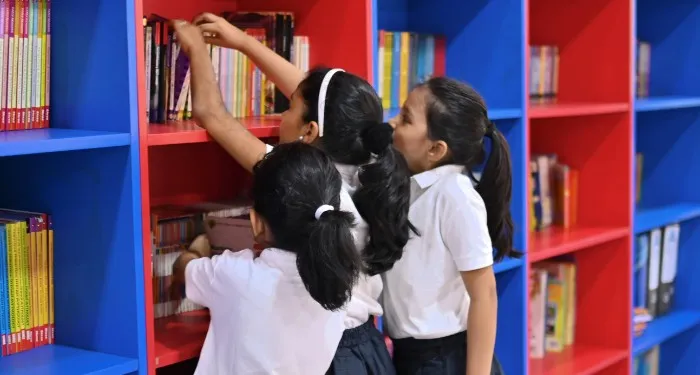


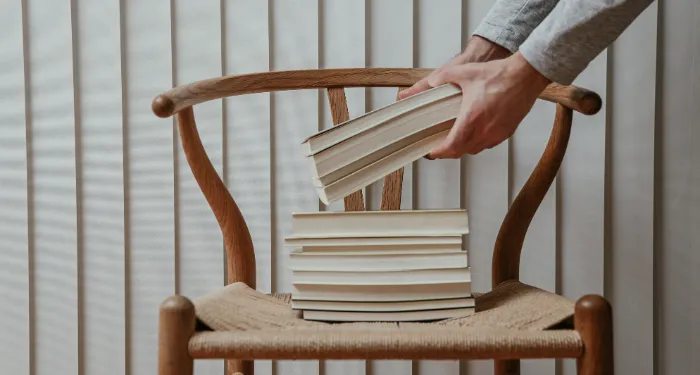
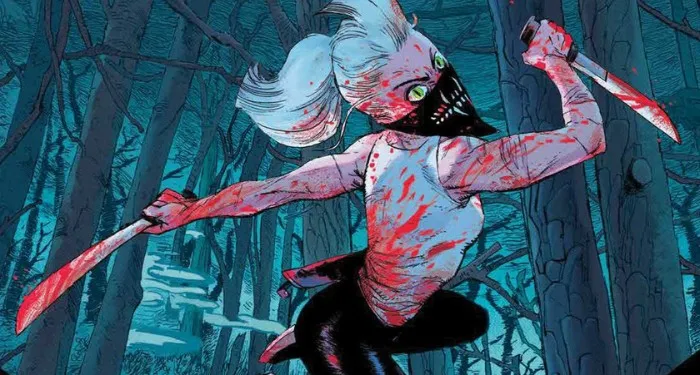
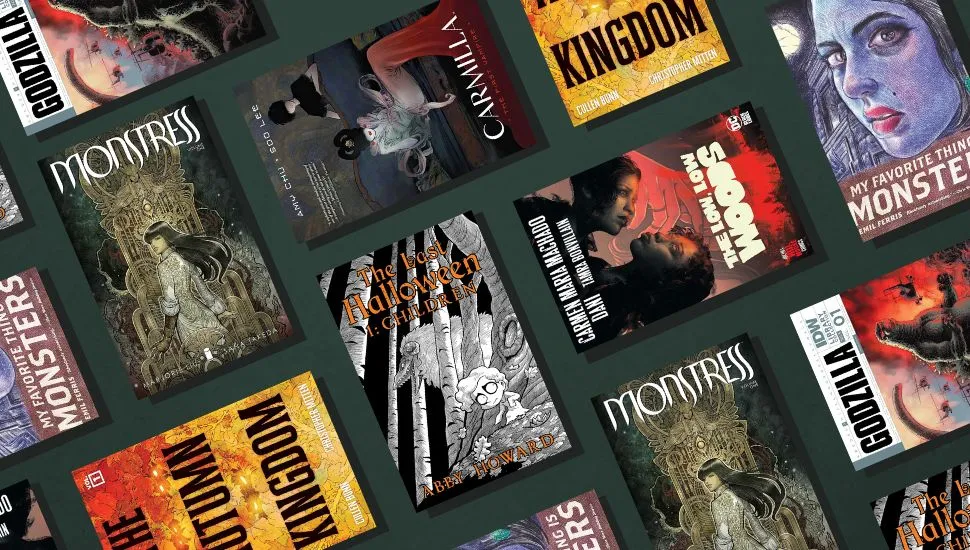







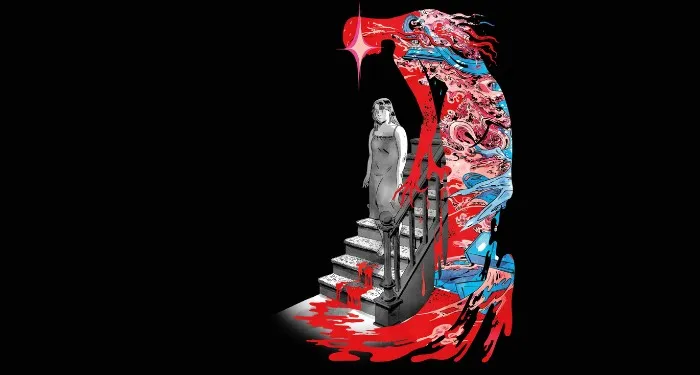
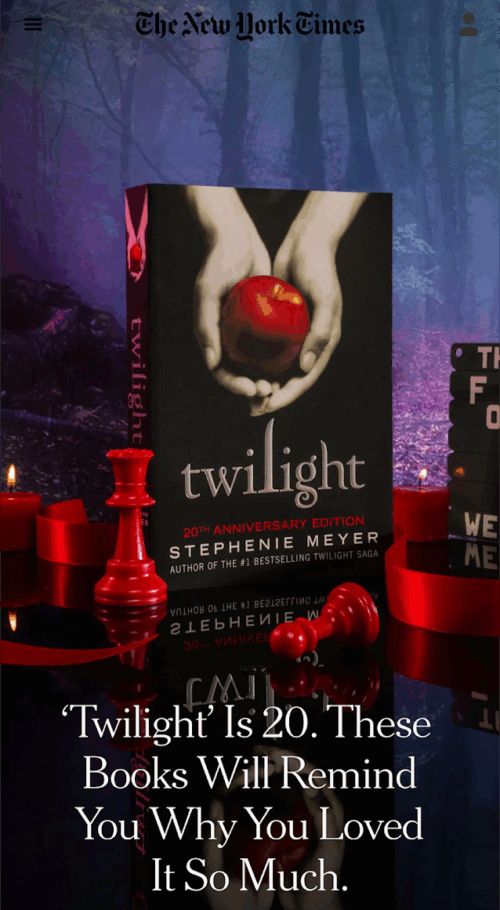
 English (US) ·
English (US) ·